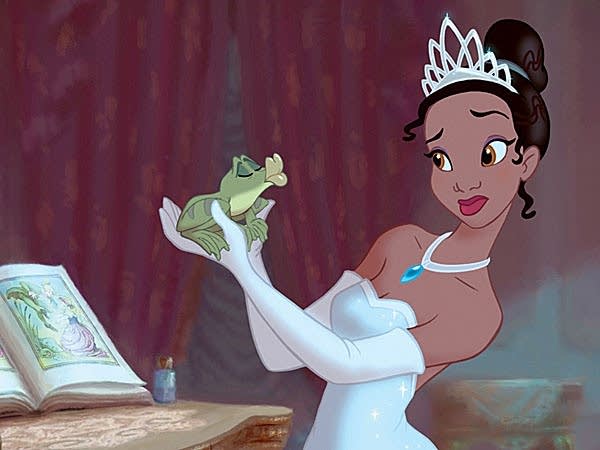What animated films teach children about race, gender

Go Deeper.
Create an account or log in to save stories.
Like this?
Thanks for liking this story! We have added it to a list of your favorite stories.
If you have kids, you're probably all too familiar with the soundtrack from the award-winning Disney animated film "Frozen."
But some of these popular animated films end up getting attention for the wrong reasons: "the lazy, African American crows and illiterate, dark-skinned labourers in 'Dumbo;' Sebastian, the workshy Jamaican crab in 'The Little Mermaid;' the darker-skinned 'evil' Arabs in 'Aladdin;' the hyenas in 'The Lion King;' the Native Americans in 'Peter Pan,'" writes Steve Rose in The Guardian.
More from The Guardian:
Turn Up Your Support
MPR News helps you turn down the noise and build shared understanding. Turn up your support for this public resource and keep trusted journalism accessible to all.
Modern animation is the success story of our movie era. It pushes at the technical frontiers of film-making and gives us visual spectacles previously unimaginable, along with substantial, accessible themes. So why are its racial politics stuck in the 1970s? Maybe parents have been too busy dozing at the multiplex, or doing the washing-up while their kids are anaesthetised in front of the TV. Maybe we've dropped our guards because talking animals are the lingua franca of innocuous cuteness, but we seem to have got to a point where these movies are teaching children the finer points of racial prejudice before they've even learned to read.
Gender stereotypes are also common in these films aimed at the youngest moviegoers. Before "The Princess and the Frog" hit move theaters, there was a buzz of criticism and skepticism.
From The New York Times:
We finally get a black princess and she spends the majority of her time on screen as a frog?
"Because of Disney's history of stereotyping," said Michael D. Baran, a cognitive psychologist and anthropologist who teaches at Harvard and specializes in how children learn about race, "people are really excited to see how Disney will handle her language, her culture, her physical attributes."
Mr. Baran is reserving judgment and encourages others to do the same. But he added that the issue warrants scrutiny because of Disney's outsize impact on children.
"People think that kids don't catch subtle messages about race and gender in movies, but it's quite the opposite," he said.
YOUR THOUGHTS: Do you think kids are being exposed to stereotypes about race and gender in the animated films they watch? Can you think of examples where movies for kids get it right? Leave a comment below.




